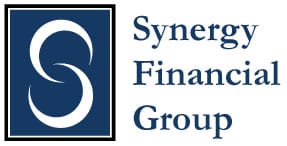What’s one thing buyers, sellers, renters, and landlords all have in common? They can all fall victim to a real estate scam.
In fact, home-related hoaxes are on the rise. Losses from real estate cybercrimes have gone up nearly as fast as home prices—totaling more than $350.3 million last year, an increase of 64%, according to the FBI’s most recent Internet Crime Report.
Wire fraud is the most common kind of real estate scam. Other crimes include fake real estate transactions, business email compromise schemes, and criminal use of cryptocurrency.
Simply being aware and on the lookout for common fraud is essential if you want to hold on to your cash and your peace of mind. Read on for insight into the most common real estate frauds happening now, and advice on how to avoid them.
1. Rental scams
Rental scams come in many forms and can have far-reaching consequences for your financial future.
“More than 5.2 million renters in the U.S. lose money in a given year because of rental scams,” says Theresa Raymond, a real estate broker at Tennessee Smoky Mountain Realty.
Fake rental advertisements are on the rise. In this scenario, the con artist or a group posts a false rental ad and asks a potential tenant for a deposit or lease payment.
Be on the lookout for rental posts that seem suspiciously idyllic, or otherwise untethered to reality.
“It starts with an online listing for a rental property that is too good to be true,” says Shaun Martin, owner and CEO of Denver Real Estate Solutions in Colorado. “The rent is significantly lower than market value, and the photos look amazing. When you contact the ‘landlord,’ they will say they are out of town and unable to show the property in person. They will ask you to wire the deposit and first month’s rent sight unseen. Of course, once you send the money, you will never hear from them again.”
Raymond advises against working with any landlord or agent who requests money or wire transfers before you see a place.
2. Wire scams
Real estate wire scams come in many different forms, but most involve a fundamental fake-out.
“This is basically a scam where someone pretends to be your real estate agent by hacking into or copying their contact information and calling you to deposit good-faith money or an earnest deposit into a fake bank account,” says Ron Wysocarski, a real estate broker based in Port Orange, FL.
To avoid this, Wysocarski says you should always meet your real estate agent face to face to ensure everything is on the up and up before fulfilling any request for a money transfer.
3. The bait and switch
The bait-and-switch trick is as old as time, but it is getting new legs as more inexperienced buyers try to sort out the ups and downs of the real estate market.
“This is one of the most common scams I’m seeing, especially in large metropolitan areas,” Martin says. “The scam artist will advertise a property for sale or rent at an unbeatable price. When you call or email to inquire about the property, they will say it has already been sold or rented, but they have others that are just as good. They will try to get you to tour the other properties, which are usually overpriced or in poor condition.”
To avoid this scam, Martin recommends researching the agents and making sure they have legitimate business experience before agreeing to see any listings.
4. Faking interest
Hyping up a property’s appeal is usually par for the course and relatively innocent, but there is a line that is increasingly being crossed by fraudsters intent on unloading less-than-loved homes.
“The overhyped or pressurized offer process is happening with more regularity for some properties,” says Doug Greene, owner of the Philadelphia-based Signature Properties Philly. “In fact, I sometimes even see this for homes that have been sitting on the market for months on end. I’ll call and ask about the listing and current situation only to find that apparently there’s tons of activity and offers being drafted from multiple buyers. How can that be? Why all of a sudden is it a popular property?”
If you get the feeling you’re being oversold, Greene says you should “stick to your gut. Don’t feel pressured by what you hear from a listing agent and don’t change your plan based on the stress of the ‘in the moment’ offer process.”
5. A lockout clause
Fraud involving a lockout clause is particularly pernicious because so much is on the line.
“Home sellers in financial straits are a common target of this con,” says Robin Antill, director at Leisure Buildings. “A buyer, aka the con artist, who seems to be in a hurry to close the deal may pressure you into a contract with a hold clause that bans you from selling your home to anybody else. The con artist gambles that you will pay any amount to get the deal done quickly, and uses that knowledge to his advantage by asking for admin fees or even a drop in the agreed-upon price. ”
To avoid the scam, read every contract carefully and realize that when you sign, you’re on the hook for anything in there. And if your buyer is impatient and demanding, consider that a big red flag.
If you do suspect you’re being targeted for fraud, let your bank know immediately. Then, contact your local FBI office.
We are ready to help you find the best possible mortgage solution for your situation. Contact Sheila Siegel at Synergy Financial Group today.







